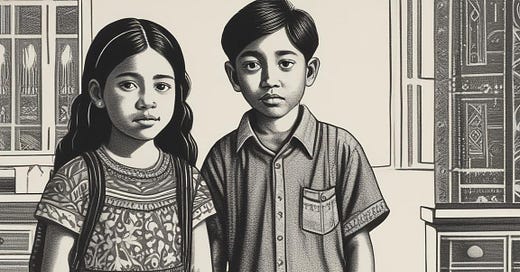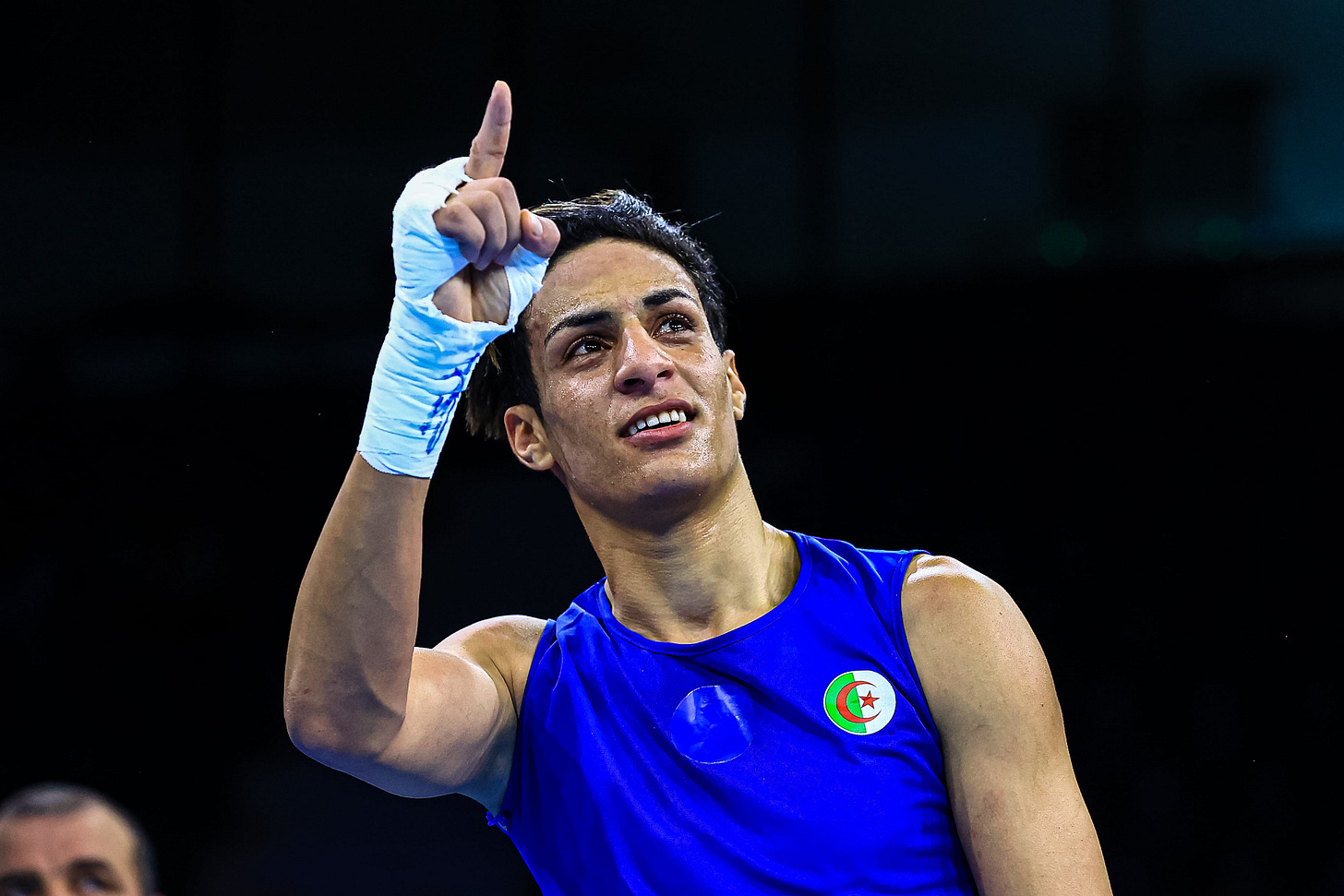Dear friends,
Its been quite a month, with the Olympics, family visits, and work ramping up.
And with summer ending and school starting, much came up for me to think about.
Thank you as always for reading.
Vivek.
We frantically close down the summer, buy new clothes and get them haircuts and sweet new shoes that my nine year old daughter (V) can tie and six year old son (R) can velcro so that we can send them off to their first day of school with ceremony and relief.
When V wakes up earlier than R, even though the night before she couldn’t sleep and had to read to herself until well past her bedtime, then runs to the bathroom to brush her hair, I know there is excitement in her. When R whisks off to his room on my first request to change his clothes and chooses to wear the shirt with the school mascot rather than the Super Mario shirt we got him for this very day (a film he watched at least 3 times back to back on the way back from our winter trip to India), I know he can’t wait.
It’s not until three fourths through summer that I realize that the first day of school is closing in on us, and that is precisely when the excitement of the summer morphs into a countdown. To when my kids get to see their friends and we get to go about our lives free and clear of our children each school day (at least for a few hours).
Yet this year, my partner A and I had another layer to think about: whether R’s class would work for him. We spent much of this year thinking if he was in the right class, with the right teacher, in the right space because he is the youngest in his cohort of mostly boys. I volunteered in R’s class a few times, and I would see kids steal his crayons or worse as he watched innocently, thinking that this is normal, that these kids were his friends.
Maybe they are. Maybe kids are trying out different things with each other. Either way, it’s so hard to know what’s right for which kids. Because as parents we can’t see what happens at school. We have little control over who they spend time with or how they manage themselves. Each time I drop R and V off at school, I’m reminded that having children is more like watching rather than molding. And in R’s last year class, I often felt like I needed to see so much more, but felt powerless to do anything about it.
I grew up in the suburbs of Houston, Philadelphia, and Augusta, Georgia in the 90’s and bullying featured prominently within that landscape. In middle school I was at a Garbha event and was old enough to be let alone and this kid kept trying to beat me up. Chasing me through the hallways as revelers danced and spun around the elephant-headed Ganesh in the center of the auditorium and music blasting as I avoided them, holding my pajamas up with one hand as I pushed away this kid with the other. I still remember being slammed against the wall in front of the line of people excited to go in - they didn’t do anything, didn’t even look. Maybe we blended in with the energy of the space, maybe we just looked like we were playing. Usually, I loved those spaces growing up because I could try moves out for myself. But that day, I was stuck with him. I don’t even think I knew his name.
I eventually realized that this kid beating me up wasn’t my fault.
My concern for R is, of course, that he might be bullied, but equally that that he doesn’t know that he is.
I know kids are mean to each other almost by default, having watched my own kids shift endlessly between cooperation and tears. Bullying is also not abnormal among us adults, as we recently saw in the Paris Olympics when Imane Khelif became the object of scorn for so many anti-trans folks, including J.K. Rowling and Elon Musk. But now she’s filed a criminal complaint for cyber-bullying against both of them, and others. But what do I say about this to my kids, one of whom might be experiencing this? Maybe it’s a way to connect with them about the injustices of this world, maybe it’s a way to think through what life should be like and what it actually ends up being. Maybe they’re in a world that is immense and fragmented, expansive yet overwhelming.
The memory of the kid that bullied me at the Garbha still haunts that middle school version of myself, and I have to tell that version that I did the best I could have at the time. Maybe I should take my own advice, and tell my kids to do their best, make the choices that feel right for them, for their bodies, for their lives. Because often, it’s those moments when the kids are out of touch from their parents that they start understanding who they really are. I know it was for me. And I continue to hope that it is for my kids too.







My boys are in their twenties now but I remember a kind of seesawing of are they ok/are they not ok from when they were young. I was bullied as a child and so was on alert with my kids, ready to wade in. Obviously, there is no one pat solution. My experience has been one of checking in with them as they slowly learn to trust their own instincts. It’s complicated.